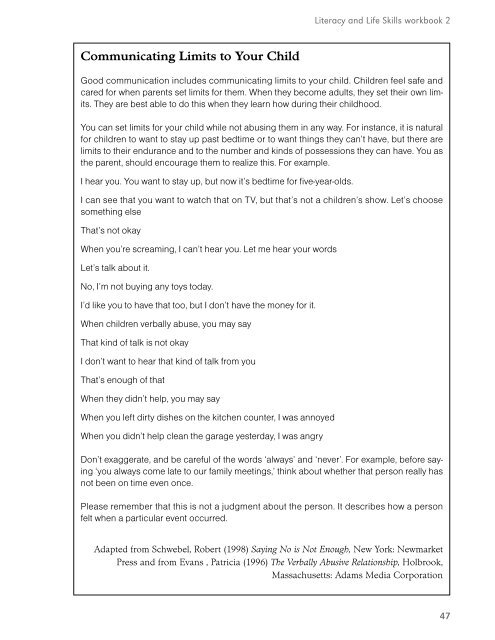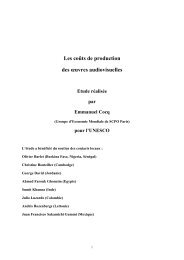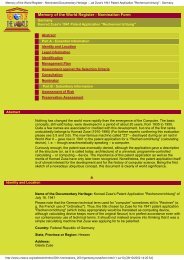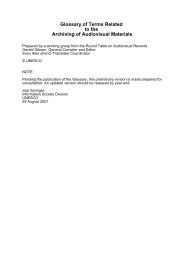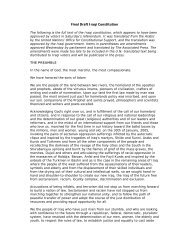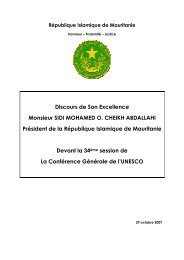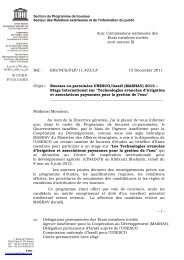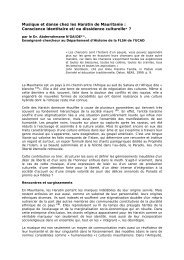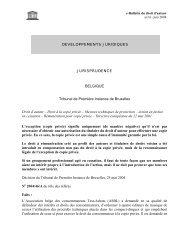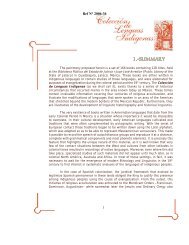Stop Violence workbook 1 - Unesco
Stop Violence workbook 1 - Unesco
Stop Violence workbook 1 - Unesco
Create successful ePaper yourself
Turn your PDF publications into a flip-book with our unique Google optimized e-Paper software.
Literacy and Life Skills <strong>workbook</strong> 2<br />
Communicating Limits to Your Child<br />
Good communication includes communicating limits to your child. Children feel safe and<br />
cared for when parents set limits for them. When they become adults, they set their own limits.<br />
They are best able to do this when they learn how during their childhood.<br />
You can set limits for your child while not abusing them in any way. For instance, it is natural<br />
for children to want to stay up past bedtime or to want things they can’t have, but there are<br />
limits to their endurance and to the number and kinds of possessions they can have. You as<br />
the parent, should encourage them to realize this. For example.<br />
I hear you. You want to stay up, but now it’s bedtime for five-year-olds.<br />
I can see that you want to watch that on TV, but that’s not a children’s show. Let’s choose<br />
something else<br />
That’s not okay<br />
When you’re screaming, I can’t hear you. Let me hear your words<br />
Let’s talk about it.<br />
No, I’m not buying any toys today.<br />
I’d like you to have that too, but I don’t have the money for it.<br />
When children verbally abuse, you may say<br />
That kind of talk is not okay<br />
I don’t want to hear that kind of talk from you<br />
That’s enough of that<br />
When they didn’t help, you may say<br />
When you left dirty dishes on the kitchen counter, I was annoyed<br />
When you didn’t help clean the garage yesterday, I was angry<br />
Don’t exaggerate, and be careful of the words ‘always’ and ‘never’. For example, before saying<br />
‘you always come late to our family meetings,’ think about whether that person really has<br />
not been on time even once.<br />
Please remember that this is not a judgment about the person. It describes how a person<br />
felt when a particular event occurred.<br />
Adapted from Schwebel, Robert (1998) Saying No is Not Enough, New York: Newmarket<br />
Press and from Evans , Patricia (1996) The Verbally Abusive Relationship, Holbrook,<br />
Massachusetts: Adams Media Corporation<br />
47


